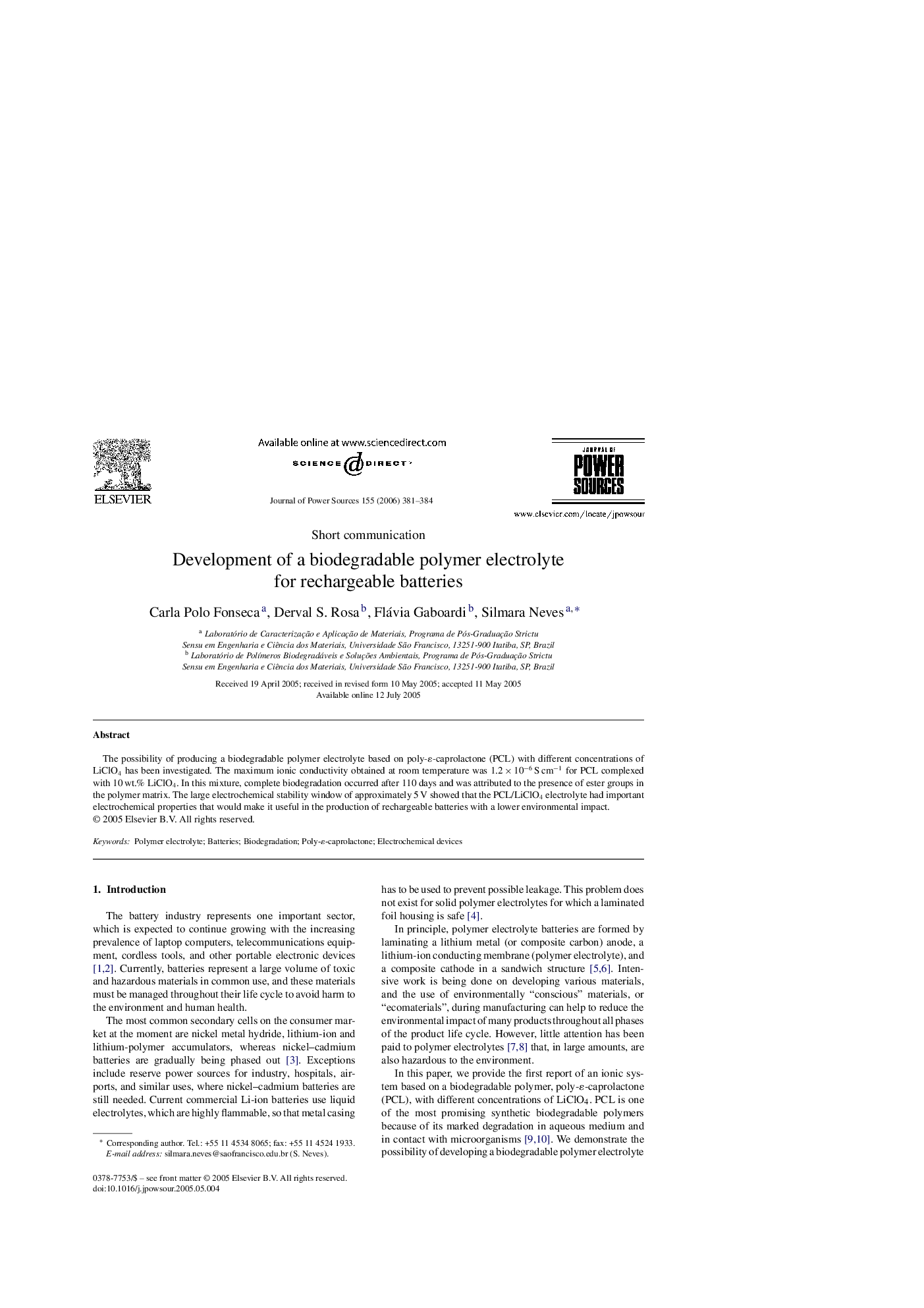| Article ID | Journal | Published Year | Pages | File Type |
|---|---|---|---|---|
| 1287916 | Journal of Power Sources | 2006 | 4 Pages |
Abstract
The possibility of producing a biodegradable polymer electrolyte based on poly-ɛ-caprolactone (PCL) with different concentrations of LiClO4 has been investigated. The maximum ionic conductivity obtained at room temperature was 1.2 × 10−6 S cm−1 for PCL complexed with 10 wt.% LiClO4. In this mixture, complete biodegradation occurred after 110 days and was attributed to the presence of ester groups in the polymer matrix. The large electrochemical stability window of approximately 5 V showed that the PCL/LiClO4 electrolyte had important electrochemical properties that would make it useful in the production of rechargeable batteries with a lower environmental impact.
Related Topics
Physical Sciences and Engineering
Chemistry
Electrochemistry
Authors
Carla Polo Fonseca, Derval S. Rosa, Flávia Gaboardi, Silmara Neves,
